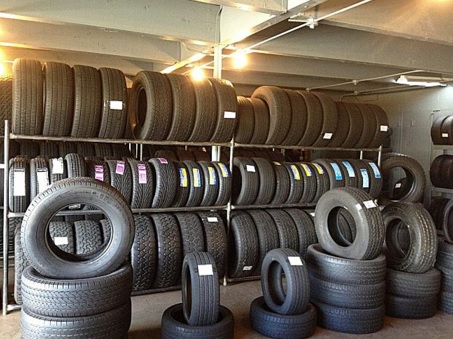Discover Top Tire Tracks Morris IL: Your Ultimate Destination for Top Quality Tire Solutions
Discover Top Tire Tracks Morris IL: Your Ultimate Destination for Top Quality Tire Solutions
Blog Article
The Environmental Benefits of Proper Tire Upkeep
Maintaining appropriate tire care is frequently ignored, yet its influence on the setting is profound. Proper tire maintenance not only extends the life-span of tires but additionally decreases land fill waste and adds to improved air high quality.
Lowered Gas Usage
Improving tire upkeep methods can lead to a considerable reduction in fuel usage for automobiles. According to the U.S. Department of Energy, underinflated tires can decrease gas mileage by 0.2% for every 1 psi decline in stress in all four tires.
In enhancement to tire pressure, normal tire rotations and placements likewise play a critical role in gas efficiency. Unevenly used tires can enhance gas intake as the engine functions harder to maintain rate and grip. By preserving correct positioning and turning tires at suggested intervals, vehicle drivers can make certain even prolong the life and wear of their tires, ultimately conserving fuel and lowering their carbon impact.
Extended Tire Lifespan
Extending the lifespan of tires is a vital facet of effective car maintenance methods that can generate expense savings and environmental benefits in the future. By effectively keeping tires, vehicle drivers can substantially lengthen their functionality, reducing the regularity at which brand-new tires need to be manufactured and old ones disposed of. This not only preserves beneficial sources but also lessens the energy and discharges related to tire manufacturing and disposal processes.
Routinely checking tire pressure, rotating tires, and making certain appropriate placement are essential actions in expanding tire life expectancy. Ample walk depth is important for optimum grip and safety and security, but it also contributes in just how lengthy tires can be used before requiring replacement. Furthermore, avoiding aggressive driving actions that speed up tire wear, such as harsh stopping and sharp turns, can even more improve tire longevity.
Inevitably, boosting the durability of tires with positive maintenance not just profits the setting by decreasing waste and conserving resources however also results in cost financial savings for lorry proprietors by postponing the demand for new tire purchases.
Reduced Emissions Output
Effective tire upkeep practices add to a reduction in emissions result, straightening with environmental sustainability objectives in the auto industry. Effectively inflated tires, consistently turned and aligned, can enhance gas performance, hence lowering the total co2 discharges from cars. When tires are underinflated, the engine needs to work tougher to propel the automobile, causing raised gas usage and greater discharges. By preserving optimal tire pressure levels, vehicle drivers can help reduce these negative ecological effects.
In addition, well-kept tires also boost traction and reduce rolling resistance, better boosting fuel performance. This, consequently, lowers the quantity of exhaust gases released right into the atmosphere. Additionally, making certain tires are appropriately pumped up and straightened can prolong the life expectancy of the tires, reducing the regularity of tire replacements and the linked ecological expenses of tire production and disposal.

Lowered Garbage Dump Waste
Given the positive effect of appropriate tire upkeep on minimizing emissions outcome, another substantial ecological benefit is the potential for reduced land fill waste. When tires are not kept properly, they wear faster and need to be replaced more regularly. This results in a greater volume of used tires being taken care of in land fills. Nonetheless, by making sure that tires are correctly pumped up, lined up, well balanced, and rotated regularly, their life-span can be dramatically expanded. This indicates that less tires wind up in landfills, minimizing the quantity of non-biodegradable waste in these currently overflowing sites.

Improved Air High Quality
Enhancing air quality via correct tire upkeep methods is a vital aspect of see this page sustainable environmental stewardship. When tires are underinflated, they create much more rolling resistance, resulting in raised gas intake and higher discharges of harmful toxins such as carbon monoxide gas and nitrogen oxides. Effectively filled with air tires not just enhance gas effectiveness but additionally reduce the amount of toxins launched into the air.
Moreover, well-kept tires with correct tread depth and placement add to safer motoring conditions, minimizing the possibility of crashes that can lead to the release of extra contaminants into the atmosphere. By prolonging the life expectancy of tires through regular maintenance and turning, fewer tires are thrown out too soon, reducing the environmental influence of tire disposal and manufacturing procedures.
Verdict
In conclusion, appropriate tire maintenance supplies many ecological benefits. It is essential for individuals to focus on tire maintenance as a check that simple yet efficient method to shield the setting for future generations.
Correct tire upkeep not only extends the life expectancy of tires he has a good point yet also lowers land fill waste and contributes to boosted air quality - tire tracks morris il. By preserving correct positioning and revolving tires at advised periods, motorists can ensure also use and prolong the life of their tires, inevitably conserving gas and reducing their carbon impact
By correctly maintaining tires, chauffeurs can dramatically extend their functionality, minimizing the regularity at which new tires require to be produced and old ones disposed of.Routinely inspecting tire pressure, turning tires, and making sure appropriate positioning are necessary steps in expanding tire lifespan. Additionally, making certain tires are correctly pumped up and lined up can expand the life expectancy of the tires, reducing the frequency of tire substitutes and the connected environmental prices of tire production and disposal.
Report this page